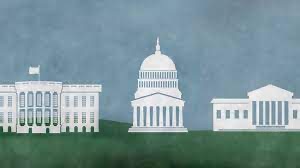
I spend an inordinate amount of time wondering how America got itself into the current dystopian mess – hate crimes, mass murderers, white supremacists, voter suppression, QAnon, and thousands of American “patriots” storming the US Capitol, with some intent on murdering the Vice President for performing his Constitutional duty. Maybe if we knew how we got here we could turn things around. The question is how did we get here?
Three recent Supreme Court cases may tell the story. They are:
1. Bush v. Gore (2000)
2. Citizens United v. Federal Election Commission (2010)
3. Shelby County v. Holder (2013)
I’m not alone in the view that these cases were wrongly decided. It’s arguable that the current political s**tstorm can be traced to one or more of these decisions. Undeniably, there were other contributing factors (Vietnam, Watergate, Iran Contra, and Clinton/Lewinsky), but these three cases, decided in this millennium can still be amended, reversed, or worked over and bring us back to a state of equilibrium.
There are scholars who would disagree, but these decisions have had a outsized impact on where we are as a country today. It’s important to note that they were not decided on principles explicitly enumerated and/or debated by the authors of the Constitution or tied to any particular orientation such as originalist, textualist and other jurisprudential interpretations. All three were 5-4 decisions based on political results rather than Constitutional principles.
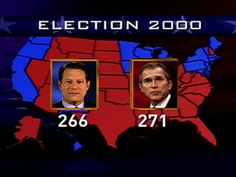
- Bush v. Gore was a one-off case that turned on the 2000 presidential vote count in Florida. The count was disputed, and the Supremes remanded the case to the Florida court for adjudication. A recount was ordered and initiated in several Florida counties. Immediately, with no clear winner, the Bush team, led by James Baker, filed a petition to stop the recount with Bush leading by 327 votes. There were contentious disputes over “hanging chads,” mail-in ballots, uncounted ballots, differences in how votes were counted, and timing. It is unclear why, but the US Supreme Court bought Baker’s argument and stopped the recount thereby giving the Florida electors to Bush. That raised Bush’s total to 271 electors – one more than needed to win – and decided America’s future for generations to come.
- Democrats should have challenged based on the one-man one-vote principle expressed in the Supreme Court’s Baker v. Carr (1962) decision. If every vote counts as in “one-man, one-vote” then why didn’t the Supreme Court follow through with the recount?
- According to legal analyst Jeffrey Toobin, “Bush v. Gore broke Justice David Souter’s heart. “The day the music died,” he called it. It was so political, so transparently political, that it scarred Souter’s belief in the Supreme Court as an institution.” (emphasis in original)
- Adding to the politicization of that decision were the following: 1. on the eve of the election Sandra Day O’Connor made a public statement that a Gore victory would be a personal disaster for her. 2. While her husband was considering how to rule on who would become the next President, Clarence Thomas’s wife was so intimately involved in the Bush campaign that she was helping to draw up a list of Bush appointees and finally, 3. Antonin Scalia’s son was working for the firm appointed by Bush to argue his case before the Supreme Court, the head of which was subsequently appointed as Solicitor-General.
- The court awarded the presidency to Bush and Gore graciously conceded in the interest of national unity.
- 9/11 happened nine months later. To Bush’s credit the crisis was well managed and an abundance of goodwill created worldwide.
- We will never know how Gore would have handled the crisis, but it is inconceivable that he would have been squandered all that goodwill and sympathy for the US with an invasion of Iraq based on false intelligence about WMD.
- This was a Cheney/Bush strategy to redeem George H.W. Bush’s reputation for not pursuing Saddam Hussein all the way to Baghdad during Desert Storm.
- Consider the consequences of that decision and the rabbit hole it created in the Middle East.
- Democrats should have challenged based on the one-man one-vote principle expressed in the Supreme Court’s Baker v. Carr (1962) decision. If every vote counts as in “one-man, one-vote” then why didn’t the Supreme Court follow through with the recount?

- Ten years later, the Supreme Court ruled in Citizens United v. Federal Election Commission that FEC rules limiting corporate spending in elections were an infringement on the corporation’s First Amendment free speech rights. It had blocked Citizens United, a conservative non-profit, from promoting and airing a film critical of presidential candidate Hillary Clinton during the presidential primaries and a lower court upheld the FEC position. Citizens United sued to reverse that decision.
- The regulations in question were based on 100-year-old statutes intended to prevent corruption in federal elections. The court’s decision insured that corporations would henceforth be regarded as “citizens” for purposes of federal litigation. The spigot was open for unlimited contributions.
- “Dark money” from anonymous donors set new records for influencing elections in the decade following the Citizens United decision. Dark money groups have reported nearly $1 billion in direct spending on U.S. elections to the FEC since Citizens United.
- For every dollar in dark money by groups that do not fully disclose their donors in the decade before Citizens United, at least $10 were spent in the decade after. (OpenSecrets.org).
- Citizens United suggests our elections are for sale while undermining voter faith in the incorruptibility of elections.

- The final case in this triad is Shelby County v. Holder, a 2013 case brought by several jurisdictions to strike a requirements in the 1965 Voting Rights Act that required certain states and local governments with a history of “invasive and insidious” racial discrimination in voting to obtain federal preclearance before implementing any changes to their voting laws and practices.
- The Roberts court in a 5-4 decision ruled the preclearance requirement unconstitutional because the disparate treatment of these states was “based on 40-year-old facts having no logical relationship to the present day” and thus not responsive to current needs.
- The Court held that Congress cannot subject a state to preclearance based simply on past discrimination, noting that since the coverage formula was last modified in 1975, the country “has changed, and while any racial discrimination in voting is too much, Congress must ensure that the legislation it passes to remedy that problem speaks to current conditions”
- By 2018, five years after the ruling, nearly 1,000 U.S. polling places had closed, many of them in predominantly African American counties. There were also cuts to early voting, purges of voter rolls and imposition of strict voter ID laws.
- A 2020 study found that jurisdictions that had been covered by preclearance requirements substantially increased their voter registration purges after the Shelby decision. (Wikipedia)
- Since the inauguration of President Biden, 43 states have introduced more than 250 bills intended to restrict or suppress voter participation, including all the jurisdictions that required preclearance under the Shelby County ruling.
The Declaration of Independence and Constitution notwithstanding, America has a checkered history when it comes to voting rights.
- At the time of the Declaration only white male property owners were allowed to vote and the Constitution counted negroes as 3/5 of a person for census purposes but did not allow them to vote.
- In 1865, the 13th Amendment was passed ending slavery in the US but did not give negroes voting rights.
- In 1870, passage of the 15th Amendment prohibited discrimination in voting based on “race, color, or previous condition of servitude,” technically ensuring negroes the right to vote but ushering in the era of Jim Crow prohibitions denying them voting rights.
- In 1920, the 19th Amendment guaranteed women the right to vote.
- In 1965, the Voting Rights Act gave the Federal Election Commission “preclearance” authority over states with a history of racial discrimination to review any changes to election law.
- In 2013 the Voting Rights Act was stripped of its preclearance provision and a new era of voter suppression initiated.
As a Constitutional law student in the ‘60s, I observed the Warren Court lean left to protect racial minorities and the disenfranchised. In the 70s and 80s I saw the court move center right under the leadership of Chief Justices Burger and Rehnquist and regarded it as a normal reaction to a left-leaning Warren Court. But it was the Bork, Thomas, and Kavanaugh confirmation hearings that convinced me the process was corrupted and stripped of any pretense of neutrality. The Court is now an unpredictable political instrument based lifetime appointments by whomever happens to have the power when there was a vacancy.
Governmental change comes at a glacial pace. I won’t live long enough to see the changes I think are needed, but I believe they are possible. Social scientists have documented an “optimism bias” in humans. Optimism is hard to come by these days, but I’m a subscriber.
The changes needed involve rethinking the electoral process (Electoral College), protecting voting rights (uniform rules to ensure all voters have access and opportunity), a Constitutional amendment to reverse Citizens United to control election spending, and the possible implementation of term limits or additional Justices to the Supreme Court.
By today’s standards, these are radical changes, but we need them to bring democratic practices up to date and ensure a more even-handed justice.
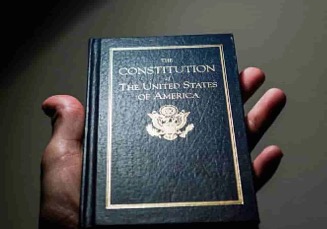
- The electoral college is an outdated relic of an earlier age and needs to be updated.
- Article II, Section 1 of the US Constitution is the foundation document for the Electoral College, but is universally criticized for:
- Making “swing states” more important than the others
- Permitting the election of a candidate who does not win the most votes
- Allowing the winner-take-all feature to cancel the votes cast for the losing candidate
- Article II, Section 1 of the US Constitution is the foundation document for the Electoral College, but is universally criticized for:
- Voting rights should be uniform, fair, and ensure access for all Americans. HR 1 and SR 1, two bills now before Congress would insure this.
- Money should not determine the outcome of an election.Citizens United v. Holder should be reversed. Yesterday I received a solicitation from Public Citizen, a non-profit consumer rights advocacy group, asking me to support passage of a 28th Amendment to the Constitution that would deny corporations the right to spend unlimited amounts of money in electoral politics. So far, 22 states and 800 cities have passed resolutions supporting the amendment and polls show 3 out of 4 Americans support it as well.
- Supreme Court justice should not be subject to the partisan whims of electoral politics. Term limits, expanding the number of justices, and/or the periodic rotation of justices would help minimize the politics and restore faith in the institution. Legislators are elected and can be voted out. Justices oversee and enforce the law but lifetime appointments make them essentially above the law. This can be modified to assure fairness.
We can’t turn the clock back; we have to live with the consequences of Bush v. Gore, the Iraq invasion, the Trump phenomenon, the appointment of 3 conservative Supreme Court justices and 200 federal judges with lifetime appointments, and an abundance of race related murders. This is a critical time in our history, a time to reflect on what kind of a country we want and what kind of government will enable us to get there.
Is it too much to ask citizens and elected officials to act for the common good? Other countries do it. Why has it become so difficult for us? Can American individualism subordinate itself in order to arrive at a collective good to restore a functional system. The jury is out; Congress is stalemated and unable to function, our roads, bridges are falling apart, our airports are third world quality, we have no rail system, and every day we wake up to news of gun violence. We are losing our advantage in tech innovation, medical devices, space exploration, and, most of all, our quality of life. We need strong leadership with vision and good values. My optimism bias says we can come together in a bipartisan way in spite of our recent past. But, we need to move decisively if we’re going to recapture the innovation advantage and live up to our professed ideals.



























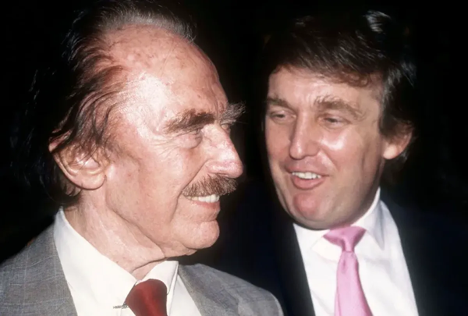


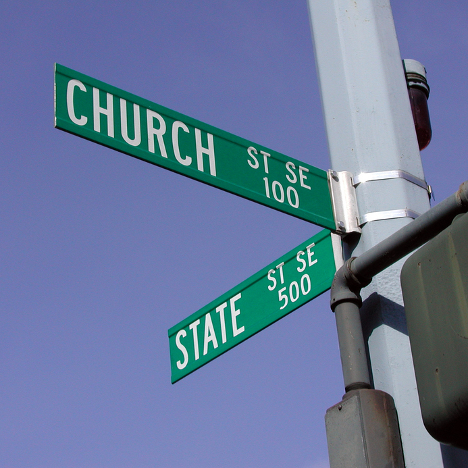
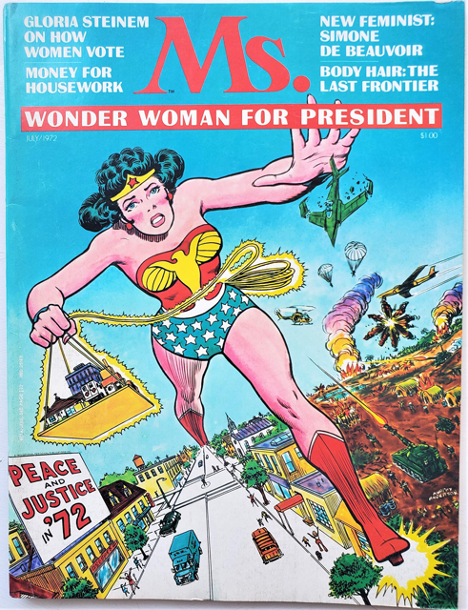

Painful decisions all. I agree with your analysis, but not your optimism given the Supreme Court we have now. How likely is it that they will side with voters and their ability to exercise their rights?
I appreciate the simplification of these processes in a non partisan manner through this article, it allows me to understand all this more. I have increasingly come to realize these decisions of the recent past, were not going to go well. I would like to be optimistic & hope our political system can help correct all these wrongs. Indeed our Supreme Court needs great attention & I’m hopeful we will unite to get it done. Indeed, the USA is not the place I immigrated to, but I hope the strength of the people can help her recoup & restore to the strength of her past.
Jack an excellent piece. Like you I wonder what happened. I pride myself being a registered independent. So I try and visualize both sides of the spectrum. I thought your opening paragraph was one sided. It is really not one side that has caused our dilemma and the great divide. You mention thousands stormed the Capitol intent on murdering the Vice President. That is just not a accurate fact. We are now a Nation which I do not think in my lifetime will come back to the one you and I would be happy with.
We have to come back to the middle. Large cities and inner cities as well as States have fallen into complete disrepair. Voter rights. Yes we need a process that is fair. Not Facebook getting involved with large donations. This is for States to administer in a fair but legal way. Only registered voters with the proper ID’s. Make it fair for all. Minorities are smart and can do it without any special help. All the same.
There are so many things I could point out. All I can say is Right and Left have to find some common ground or we are doomed. Jack you are the true renaissance man. Peter B
Good article! Stay well and let’s keep in touch, Gary
Jack, it’s worth noting the additional consequences of Citizens United. One example is that it resulted in overturning a 100 year old law in Montana prohibiting corporate spending to influence elections–a law created to stop the corruption of politics by large corporations (many of them engaged in copper mining and processing). https://www.csmonitor.com/USA/Justice/2012/0625/Supreme-Court-strikes-down-Montana-law-reaffirming-Citizens-United